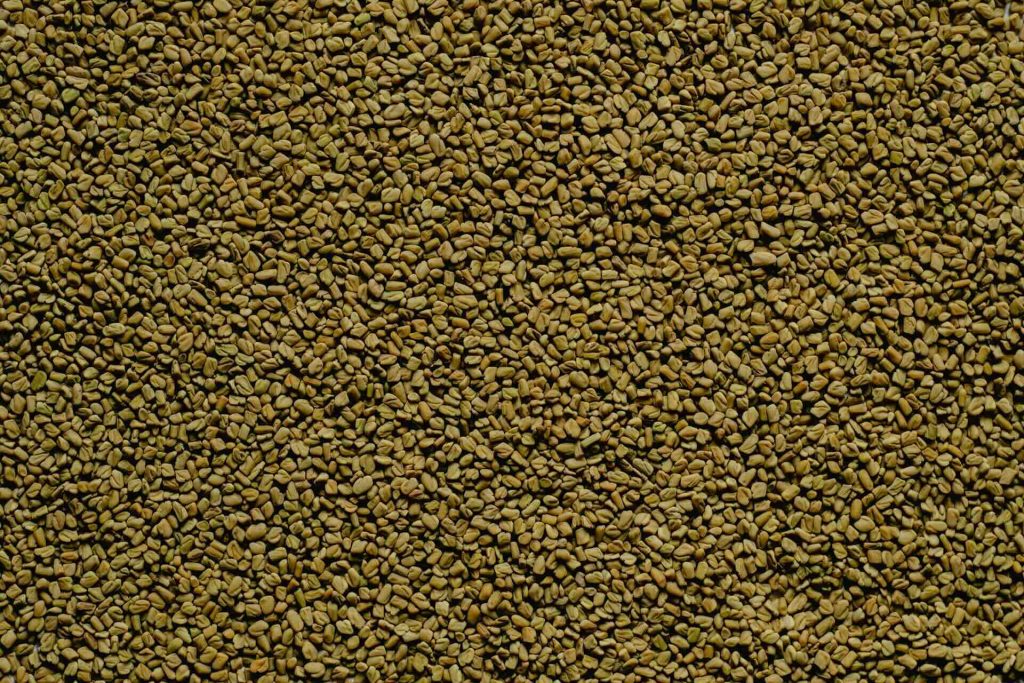Ever come across a supplement label boasting “testosterone support” or “libido booster” and noticed Fenugreek listed as a key ingredient? You’re not imagining things—Fenugreek has quietly become a rising star in the world of men’s health, especially in male enhancement formulas. But does it really work? And why is this humble herb showing up in everything from pills to protein powders?
Let’s break it down—without the fluff. Whether you’re exploring natural performance enhancers or just curious about what Fenugreek brings to the table, this guide delivers the facts.
What Is Fenugreek?
Fenugreek (Trigonella foenum-graecum) is an ancient herb native to South Asia and the Mediterranean. Known by many names—Greek hay, Methi, Hu Lu Ba, Bockshornklee—it’s long been used in traditional medicine and cooking. The plant produces small, golden-brown seeds packed with nutrients and bioactive compounds.
It’s those seeds that make Fenugreek so valuable in health circles today. When ground, steeped, or extracted, they can be taken as a supplement or used topically. The taste? Bitter, but tolerable—especially once you learn what they’re doing inside your body.
Fenugreek’s Nutritional Profile: Small Seed, Big Impact
Per tablespoon (roughly 11 grams), Fenugreek seeds contain:
- Iron: 3.8 mg
- Protein: 2.7 g
- Fiber: 2.8 g
- Magnesium: 21 mg
- Manganese: 0.1 mg
- Carbohydrates: 6 g
- Copper: 0.1 mg
- Fats: 0.7 g
What stands out most, though, are its naturally occurring furostanolic saponins, especially one called protodioscin. These are believed to be responsible for Fenugreek’s hormone-modulating effects.
Why Fenugreek Is a Star Ingredient in Male Enhancement Supplements
Men’s health supplements often promise everything from improved performance to increased size—but Fenugreek has actual research to back up its benefits. Here’s how it helps:
1. Boosts Testosterone—Naturally
Multiple studies have shown that Fenugreek can help raise testosterone levels in men, especially those with mild deficiencies. One 12-week trial published in Phytotherapy Research found that men taking 500 mg of Fenugreek daily experienced significant improvements in libido and free testosterone levels—without adverse side effects.
Unlike synthetic hormones, Fenugreek works with your body’s own endocrine system, making it a gentler option for men wary of injections or prescriptions.
2. Increases Libido and Sexual Desire
Let’s face it: low sex drive can hit hard, and it doesn’t always come from age alone. Stress, poor sleep, even diet can throw things off. Fenugreek has been shown to enhance libido in both men and women by balancing hormones and supporting dopamine production.
Users often report noticeable changes in sexual desire and arousal within weeks of regular supplementation.
3. Supports Erectile Function and Blood Flow
While Fenugreek doesn’t increase penis size permanently (no herb does), it can support firmer, fuller erections by improving blood circulation. This happens partly due to its impact on nitric oxide levels—key for vasodilation and erectile strength.
Fenugreek also helps reduce arterial stiffness, which is important for men dealing with early signs of erectile dysfunction.
4. Reduces Inflammation—Internally and Externally
Inflammation can quietly sabotage sexual health. From chronic fatigue to penile sensitivity issues, underlying inflammation affects performance. Fenugreek contains anti-inflammatory compounds that may help with localized swelling and discomfort when used as a topical paste—but its strongest effects are internal.
Note: Always patch test topical products first, especially if applying near sensitive areas.
Real-Life Uses: What the Data and Users Say
Case Study 1: A 38-year-old man experiencing fatigue and declining libido began taking a daily supplement containing 600 mg of Fenugreek. After 8 weeks, he reported a 30% increase in morning arousal and overall mood improvement—validated by increased free testosterone levels on lab tests.
Case Study 2: A fitness enthusiast used Fenugreek alongside strength training. In 6 weeks, not only did muscle recovery improve, but his resting testosterone increased by 12%, according to at-home blood testing kits.
Choosing the Right Fenugreek Supplement
Not all Fenugreek products are created equal. Here’s what to look for:
- Standardized Extracts: Aim for 50%+ saponins
- Clinically dosed: 500–600 mg per serving
- Third-party testing: To ensure purity and potency
- Combination blends: Often paired with zinc, magnesium, or Tribulus for synergistic effects
Top-rated brands: TestoFuel, Prime Male, and GNC Men’s Fenugreek Formula
Are There Any Side Effects?
For most people, Fenugreek is well tolerated. Mild side effects can include digestive discomfort or a maple syrup-like smell in sweat and urine—yes, it’s a real thing. More seriously, it may interact with blood thinners or medications for diabetes, so consult your doctor if you’re on prescriptions.
Final Thought: Should You Try Fenugreek?
If you’re looking for a natural, science-backed way to support testosterone, energy, and libido, Fenugreek is worth serious consideration. It won’t transform your life overnight, but when combined with good sleep, clean eating, and exercise, it can nudge your body in the right direction.
Just remember: no supplement works in isolation. But if you’re building a better, stronger, more confident version of yourself—Fenugreek might just be the secret weapon you’ve been missing.
Curious how Fenugreek stacks up to Ashwagandha or Maca? Let me know, and I’ll break it down in another post.
- How Automated Dispensing Cabinets (ADCs) revolutionized point-of-care medication administration? - November 23, 2021
- How to Select the Best and Most Affordable Fitness Tools - October 31, 2021
- What is Causing the Trend of Nursing Turnover and How to Stop It - August 24, 2021


